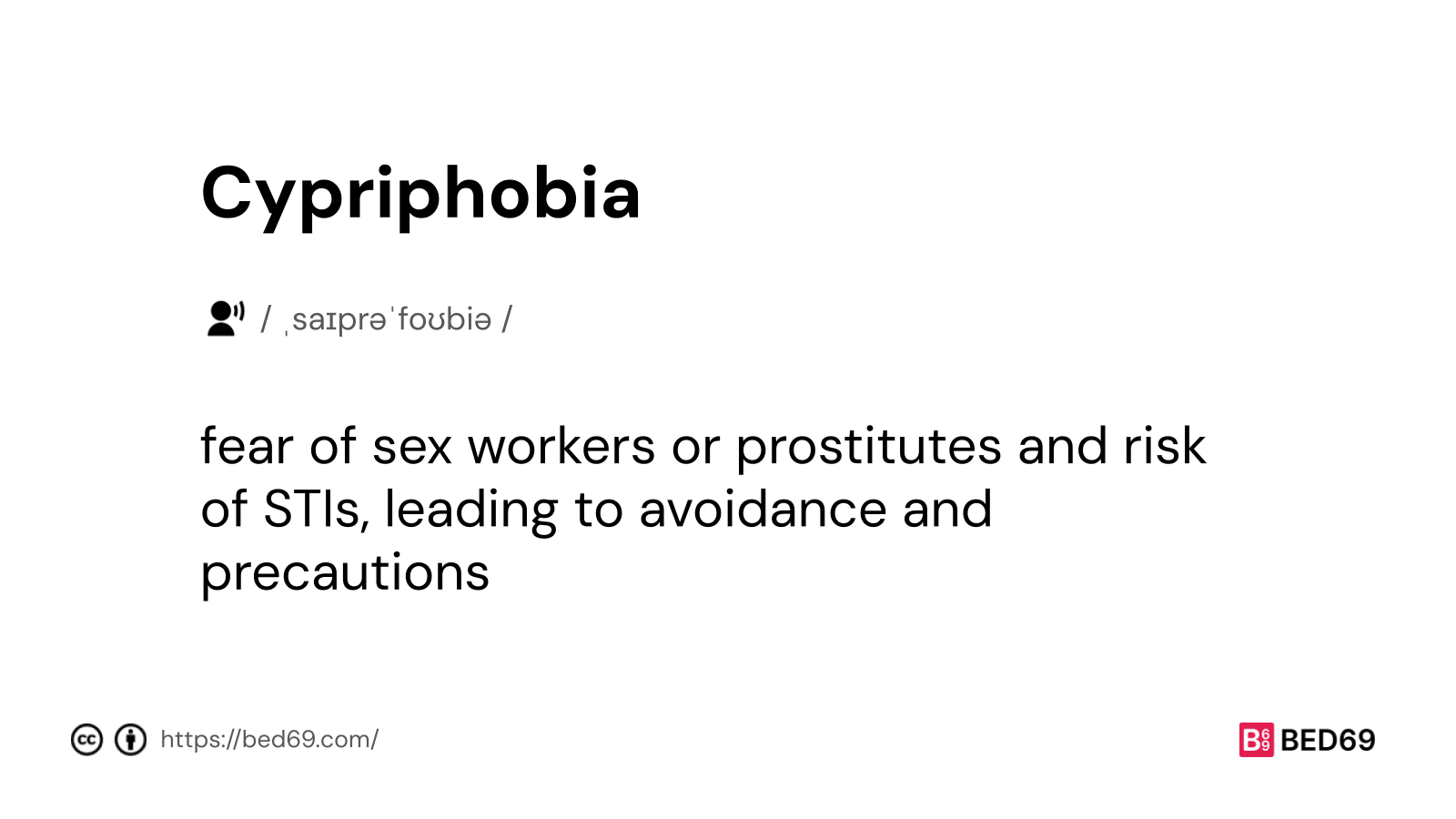What is Cypriphobia?
Cypriphobia is a fear of sex workers or prostitutes and the risk of getting sexually transmitted infections. People with this fear, called cypriphobes, may avoid such situations and insist on protection or regular testing. Therapy is a common way to address and manage this fear.
Cypriphobia pronunciation: / ˌsaɪprəˈfoʊbiə /

How does Cypriphobia affect relationships
Cypriphobia can have a significant impact on relationships. Those with this fear, known as cypriphobes, often avoid situations involving sex workers or the risk of sexually transmitted infections. They may insist on using protection or frequent testing, which can strain relationships. Partners of cypriphobes may feel pressured to adhere to strict safety measures, even in committed relationships. This fear can lead to avoidance of intimacy altogether, affecting emotional connections.
While these coping mechanisms offer temporary relief, they don’t address the root cause. Seeking therapy is a common way for cypriphobes to work through their fears and improve their relationships. Therapy focuses on changing thought patterns and behaviors, providing more effective long-term solutions than medication. By addressing the underlying issues, individuals can develop healthier attitudes towards intimacy and establish more fulfilling relationships.
Overcoming Cypriphobia through therapy
Therapy is a common way to address and manage Cypriphobia. While avoidance tactics can help temporarily, they don’t solve the root issue. If Cypriphobia starts affecting relationships and daily life, seeking therapy can be beneficial. Therapy aims to modify thoughts and behaviors, helping individuals overcome their fears. It’s often more effective than relying solely on medication.
By working with a therapist, individuals can understand and confront their fears in a supportive environment. Therapists use various techniques to help individuals gradually confront and manage their anxieties about sex workers and sexually transmitted infections.
Explore other interesting terms:
